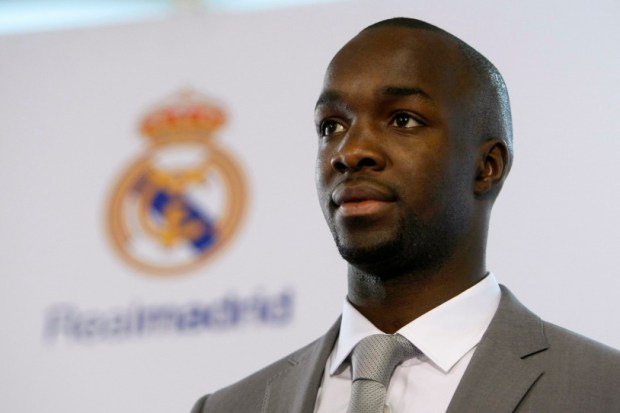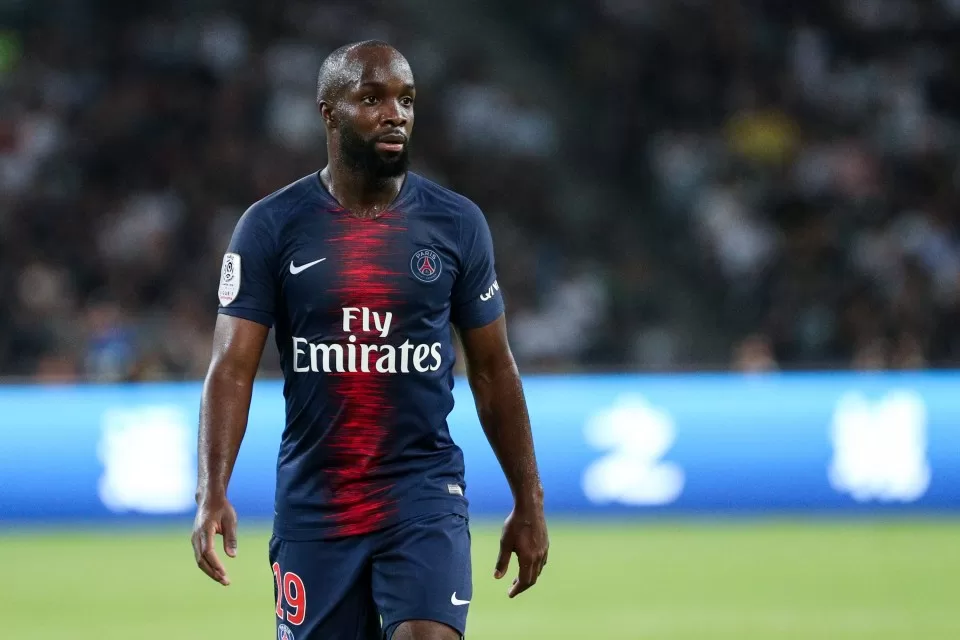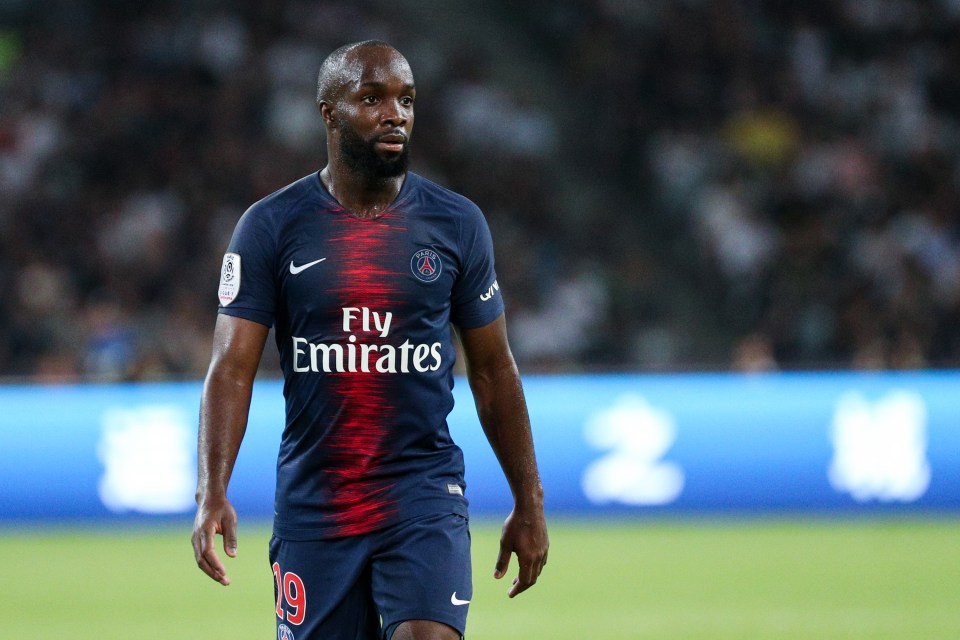FIFA will try to prove that the current transfer system is vital for smaller clubs – to prevent the Lassana Diarra ruling ripping up the footballing eco-system.
Former Chelsea, Arsenal and Portsmouth midfielder Diarra’s victory at the European Court of Justice had his lawyer Jean Louis Dupont declaring the only possible outcome will be the end of clubs being able to demand fees for players.
Dupont, who was also the successful lawyer behind the Jean-Marc Bosman case that upended European football in the 1990s, argued the decision would inevitably lead to US-style collective bargaining agreements between players and clubs and “trades” – swap deals – rather than transfer fees being paid.
But while Fifa publicly insisted the defeat was a minor one relating to “only two paragraphs of two articles” of their transfer regulations, Zurich’s legal chiefs will now go all out to persuade the Euro Judges that they cannot afford to crash the system.
West Ham vice-chairman Karren Brady warned in her exclusive Sun column of the potential for “chaos and anarchy” if the potential repercussions do lead to players walking out on their contracts for better deals elsewhere.
Fifa insiders conceded that the ruling would force a rewriting of some of the current rules regarding players who fall out with their employers.
That would mean clubs engaging those players whose contracts were terminated would not be expected to pay any “fines” – with Diarra going to Court in 2014 after Belgian club Charleroi pulled out of a deal to sign him because they faced being hit by a demand for £8m from Lokomotiv Moscow.
World chiefs also recognise that they can longer withhold processing International Transfer Certificate requests for players who are in conflict with a former club.
But Fifa remains hopeful it can persuade the Court that its current rules are proportionate.
The five Judges on the Court confirmed the need for “stability” in the football system, backing the existing two transfer registration windows which prevent players being able to move clubs at any time.
BEST FREE BET SIGN UP OFFERS FOR UK BOOKMAKERS
It is likely, though, that Zurich lawyers will attempt to argue that scrapping transfer fees wholesale would be a disaster for the entire economic fabric of the game.
The business models of clubs in many European countries – especially France, Belgium, Holland, Portugal and Scandinavia – are designed to develop and sell on talent to “bigger” markets.
If those fees can no longer be demanded, with players free to simply break their contracts and move on, those clubs would no longer be capable of remaining solvent.
The argument will almost certainly be that allowing players to tear up their deals without any sanctions or consequences would prove a death-knell for the sport outside the biggest and wealthiest markets.
And Fifa will be backed by Europe’s most powerful clubs including the Prem Big Six.
The Diarra ruling will now be a major topic of conversation when the European Club Association, which represents more than 700 clubs across the continent, holds its General Assembly in Athens this week.
Transfer fees scrapped Q&A: How landmark ruling could mean NFL-style trades and stars suing for millions

FORMER Chelsea, Arsenal and Portsmouth midfielder Lassana Diarra has won his landmark case at the European Court of Justice.
SunSport’s Martin Lipton explains what it was all about – and what it might mean for the future of football…
What was the case about?
Diarra argued Fifa’s transfer rules were illegal after the world body backed Lokomotiv Moscow’s claim that he had broken his contract by refusing to train with them.
Is that it?
No. Belgian club Charleroi wanted to sign Diarra but were told they would have to pay the money he was fined by Moscow, while Fifa refused to issue an International Transfer Certificate unless they coughed up.
Okay, so what does the ruling mean?
Theoretically players will have the right to break their contracts and switch clubs without a fee changing hands – just like any employee in any other industry.
Hang on – does that mean the END of transfer fees?
Potentially, yes. Although players would have to want to move.
We would basically end up with a US-style “collective bargaining” model where players would be free to move within transfer windows without impunity.
Clubs might be able to “trade” players – swap deals – but with no extra cash changing hands.
Is everybody agreed about this?
Absolutely not. Fifa claimed the ruling “only puts in question two paragraphs of two articles” of its transfer regulations.
Yet the Judges said the current rules were “prohibited” under EU law and “anti-competitive” as they “limit the freedom of action” of players to change employer.
Read SunSport’s full Q&A with football on the brink of the biggest shake-up in 30 years…
In a statement, the ECA said: “The ECJ did recognise the legitimacy of rules aiming at protecting the integrity and stability of competitions and the stability of squads.
“It also recognised rules which aim to support such legitimate objectives, including the existence of registration windows, the principle that compensation is payable by anyone who breaches an employment contract and the imposition of sporting sanctions on parties that breach those contracts.
“The football transfer system is designed to establish a balance between the rights of players to free movement and stability of contracts, together with the legitimate objectives of the integrity and stability of squads and competitions.
“Crucially, the transfer system affords medium and smaller sized clubs the means to continue to compete at high levels of football, especially those who are able to develop and train players successfully.
“The transfer system as a whole, and transfer fees and solidarity mechanism more specifically, are an efficient and effective means of wealth distribution from bigger clubs to smaller ones.”
Inside Lassana Diarra’s legal case with Fifa

LASSANA DIARRA’S case with Fifa dates back to 2014 when he was playing for Lokomotiv Moscow.
The former Chelsea and Real Madrid midfielder was in a dispute with Lokomotiv over wages – with the Russian side ultimately terminating his contract.
The case was referred to Fifa’s Dispute and Resolution Chamber (DRC) which ruled against Diarra, fining him £16MILLION.
During this time, Diarra received a new contract offer from Belgian side Charleroi.
But Charleroi wanted clarification from Fifa that they would not be liable to pay any of the money owed to Lokomotiv.
Fifa could not make that guarantee and the move never happened.
As a result, Diarra brought new legal action against Fifa and the Belgian league claiming a loss of earnings.
That started the long process that has led to this week’s groundbreaking judgment.


